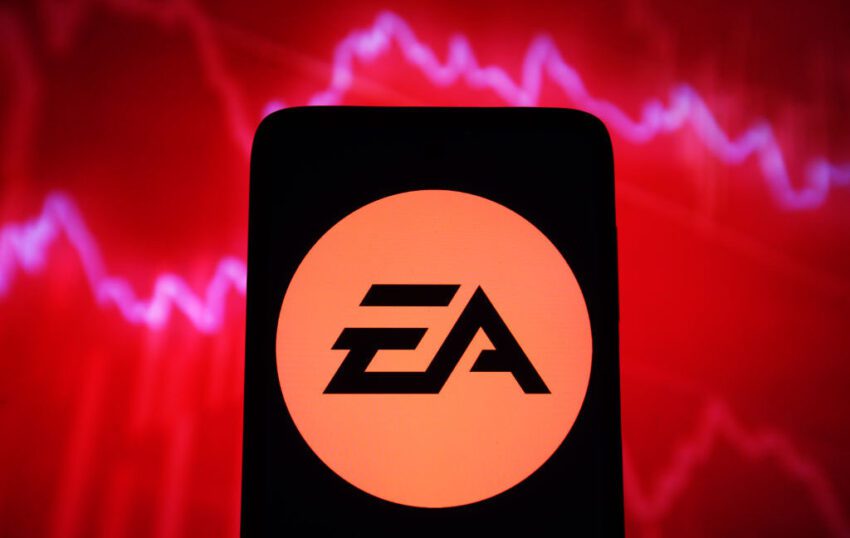
reports ea set to be sold to Electronic Arts (EA), a prominent player in the video game industry, is reportedly on the verge of a monumental shift as it plans to go private in a deal potentially valued at up to $50 billion.
reports ea set to be sold to
Overview of the Proposed Deal
According to reports from major financial news outlets including The Wall Street Journal, Reuters, and the Financial Times, EA is in discussions to be acquired by private investors. This move is significant not only due to the size of the deal but also because it could represent the largest leveraged buyout in history. The reports suggest that an announcement could come as early as next week, indicating a swift progression in negotiations.
Key Players in the Acquisition
The potential acquisition involves several high-profile investors. Among them are Silver Lake, a leading technology-focused private equity firm; Saudi Arabia’s Public Investment Fund (PIF), which has been actively investing in various sectors; and Affinity Partners, a firm led by Jared Kushner. Each of these entities brings substantial financial resources and strategic interests that could reshape EA’s future.
Saudi Arabia’s Public Investment Fund
The Saudi PIF is already a significant player in the gaming industry, having acquired a roughly 9 percent stake in EA over the past year. This investment positions the fund as one of EA’s largest shareholders. The PIF has also made headlines for its extensive investments in other gaming giants, including Nintendo, Take-Two Interactive, Activision Blizzard, Capcom, Nexon, and Koei Tecmo, all managed through its Savvy Games Group. This diversification indicates a strategic intent to bolster the gaming sector within Saudi Arabia, aligning with the country’s broader economic diversification goals.
Implications of Going Private
The implications of EA transitioning to a private entity are multifaceted. For one, going private could provide EA with the flexibility to make long-term strategic decisions without the pressure of quarterly earnings reports that public companies face. This could allow the company to invest more heavily in game development, explore innovative technologies, and expand its portfolio without the immediate scrutiny of shareholders.
Financial Considerations
From a financial perspective, the proposed valuation of up to $50 billion raises questions about the company’s current market position and future growth potential. EA has been a dominant force in the gaming industry, known for franchises such as FIFA, Madden NFL, and The Sims. However, the company has faced challenges, including criticism over its monetization strategies and competition from emerging gaming platforms.
A leveraged buyout of this magnitude would typically involve significant debt financing, which could place pressure on EA to generate substantial cash flow to service that debt. Investors will be keenly interested in how EA plans to navigate this financial landscape post-acquisition.
Market Reactions
The news of EA’s potential acquisition has elicited a range of reactions from stakeholders in the gaming industry. Analysts are watching closely to see how this deal could impact EA’s business model and its relationships with developers and gamers alike. Some industry experts believe that going private could enable EA to take more risks in game development, potentially leading to innovative titles that could revitalize its brand.
Strategic Moves in the Gaming Industry
The gaming industry has seen a wave of consolidation in recent years, with major companies acquiring smaller studios to bolster their offerings. EA’s move to go private could be seen as a strategic response to this trend, allowing it to streamline operations and focus on core competencies. The involvement of the Saudi PIF further underscores the growing influence of sovereign wealth funds in the gaming sector, which have the capital to make substantial investments and drive industry change.
Potential Challenges Ahead
While the potential acquisition presents numerous opportunities, it is not without challenges. The gaming industry is characterized by rapid technological advancements and shifting consumer preferences. EA will need to remain agile and responsive to these changes to maintain its competitive edge. Additionally, the company must address ongoing criticisms regarding its business practices, particularly in relation to microtransactions and loot boxes, which have drawn scrutiny from regulators and consumers alike.
Stakeholder Perspectives
Reactions from various stakeholders highlight the complexities of this potential acquisition. Investors are likely to be optimistic about the prospects of a private EA, as it may lead to improved financial performance and strategic focus. However, gamers may have mixed feelings, especially if they perceive that the company is prioritizing profit over player experience.
Community Concerns
The gaming community has voiced concerns over EA’s past practices, particularly regarding its approach to monetization. The company has faced backlash for its use of microtransactions and in-game purchases, which some players feel detract from the overall gaming experience. As EA considers this transition, it will be crucial for the company to engage with its community and address these concerns to rebuild trust and loyalty.
Future Outlook
The future of EA hinges on how effectively it can navigate the complexities of this potential acquisition. If the deal proceeds, the company will need to articulate a clear vision for its future, focusing on innovation, player engagement, and sustainable growth. The involvement of high-profile investors like the Saudi PIF could provide the necessary capital and strategic direction to help EA thrive in an increasingly competitive landscape.
Broader Industry Trends
The gaming industry is undergoing significant transformation, with trends such as cloud gaming, virtual reality, and the rise of independent studios reshaping the market. EA’s ability to adapt to these changes will be critical in determining its long-term success. As the company prepares for this potential transition, it must remain vigilant and proactive in addressing both opportunities and challenges.
Conclusion
The potential sale of Electronic Arts to private investors represents a pivotal moment for the company and the gaming industry at large. With a valuation of up to $50 billion, this deal could set a new benchmark for leveraged buyouts in the sector. As EA navigates this transition, it will be essential for the company to balance the interests of its investors with the expectations of its gaming community. The coming weeks will be crucial in determining the future trajectory of one of the industry’s most influential players.
Source: Original report
Was this helpful?
Last Modified: September 27, 2025 at 3:39 am
0 views















